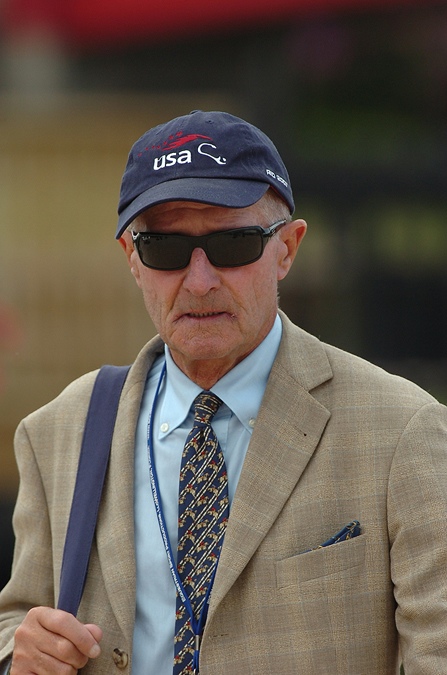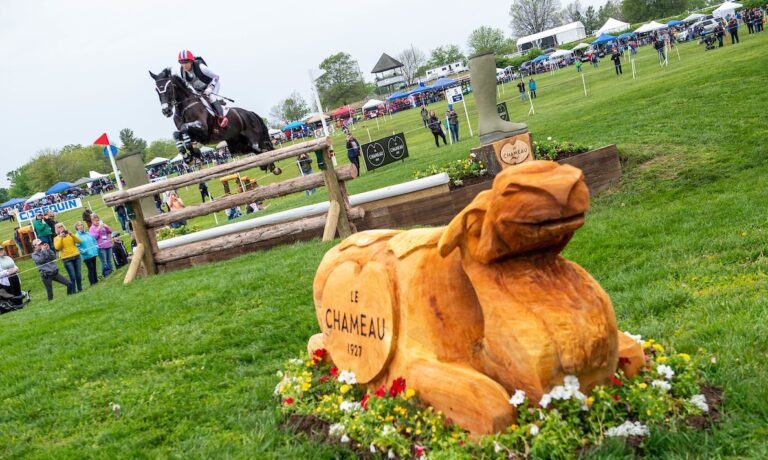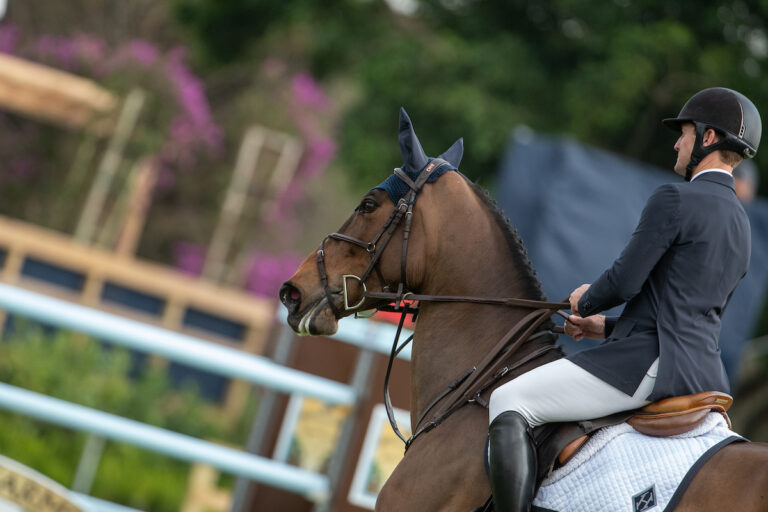August 5, 2019—George Morris, an 81-year-old show jumping icon, has been banned for life by the U.S. Center for SafeSport on charges of violating the SafeSport Code between 1968 and 1972.

A former technical advisor for the U.S. show-jumping team, a 1960 Olympic team silver medalist and a mentor who helped develop many of the world’s top show jumpers, human and equine, Morris said in a statement, “I contest these findings wholeheartedly and am in the process of disputing them.”
SafeSport’s disciplinary database stated today’s decision of “permanently ineligible,” which involves charges against Morris of “sexual misconduct involving minor” is “subject to appeal/not yet final.”
Morris is “deeply troubled by the U.S. Center for SafeSport’s findings regarding unsubstantiated charges for events that allegedly occurred between 1968 and 1972. I have devoted my life to equestrian sport and the development of future riders, coaches and Olympians. Any allegations that suggest I have acted in ways that are harmful to any individual, the broader equestrian community, and sport that I love dearly are false and hurtful.”
In a statement, U.S. Equestrian said, “The Center investigated the allegations against Morris, found them credible, issued their ruling, and banned Morris for life. U.S. Equestrian and its affiliates will enforce this ban, which is subject to appeal.”
Dan Hill, speaking for the Center for SafeSport, explained, “The process is that a responding party can request a hearing within five days of the notice of decision. After that, it’s a process that usually unfolds within 45 days. If there is a hearing it would be in front of an independent arbiter.” He added that the organization does not comment on the matters before it.
The decision, unless it is overturned, means Morris—who coached the Brazilian Olympic team in 2016 and is in great demand as a clinician—cannot attend the federation’s recognized shows, even as a spectator.
In the horse-show world, Morris is so famous that he could be identified simply by his first name.
Morris emphasized, “I share our community’s commitment to protecting the safety and wellbeing of all our athletes who need reliable guidance and encouragement at every level, of which I have provided for over 50 years. I will continue, as I always have, to proudly support equestrianism and its continued development around the world.”
Olympic gold medalist Melanie Smith Taylor, who has known Morris for 52 years, called him “the person I would want by my side if I ever had to go into the ingate again because I know I could trust him to the ultimate degree.”
In her experience, she said, “He’s never been anything but a professional and a gentleman in any situation, whether socially or during training. I can’t imagine how these things could be true.”
For many years, Morris wrote a popular column in Practical Horseman magazine, critiquing photographs of riders and offering pointers to readers. He stepped down from that position last year and was succeeded by Olympic and world championships medalist Beezie Madden.
The federation noted that since 2013, it “has had policies and procedures in place to protect and educate our members about safe sport. We want every athlete, parent, coach, support staff, and trainer to know, if you are a survivor of abuse or suspect abuse of any kind, there are resources and people to help at usef.org/safesport.”
Morris is not the first high-profile figure in the sport to come under scrutiny for SafeSport issues. The late Jimmy Williams, the California trainer who coached many Olympic riders, including Olympic team double silver medalist Anne Kursinski at the beginning of her career, was removed from the Show Jumping Hall of Fame last year based on induction standards that include integrity and character. Kursinski spoke publicly about being abused by Williams and became a symbol of standing up for athletes’ rights in that regard.










